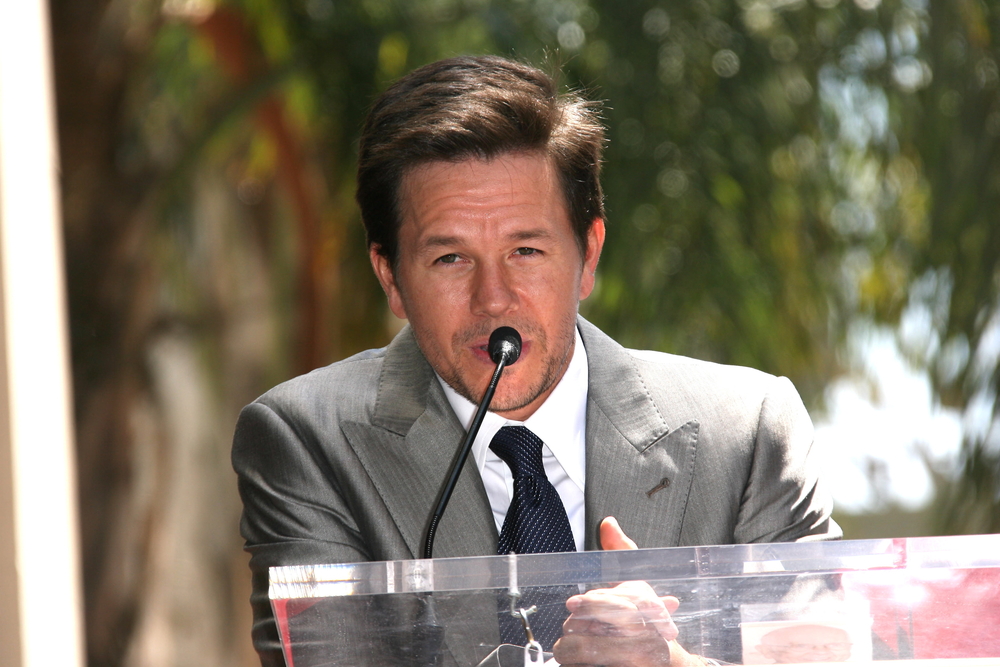Legal
Delta Sued for $10M Over Claims of Public Masturbation, Employees Who Reported Incident Fired
As if Delta didn’t already have enough problems with the recent issue of kicking YouTuber Adam Saleh off a flight for speaking Arabic, now they’re being sued for $10 million dollars.
For what? Apparently, Delta is just fine with their employees masturbating publicly.
What they are seemingly not fine with is when other employees, specifically women, complain about it. Hence, the lawsuit that was filed today in New York against them. Not only did the plaintiffs, Lauren Heffernan and Kayla Jenkins, lose their jobs but when they alerted supervisors of the offensive behavior, the higher-ups were not surprised.
Delta knew employee Mike Keve often masturbated for all to see–and Lauren has the texts to prove this knowledge. And, what’s worse, other male employees joked about wanting to “rub one out” in front of the window just like Mike. Talk about an offensive work environment.
Sorry, Delta, no way this case goes away quietly. And, it shouldn’t.
New Lawsuit Alleges That Disastrous Fyre Festival Was Nothing More Than ‘Get-Rich-Quick Scam’
Last week, social media exploded with shocking photos of the doomed luxury music festival in the Bahamas known as the Fyre Festival. Organizers, rapper Ja Rule and businessman Billy McFarland, had promised a luxury festival with A-list bands like Blink 182 and Major Lazer, gourmet food, and cush accommodations, and ticket holders had paid between 1,200 and $100,000 apiece to attend.
But when attendees began arriving April 27, all they found was a gravelly field, wind-and-rain-battered FEMA-like tents and bread and cheese for dinner. By Friday morning, the festival had been canceled — and the festival goers found themselves with few options to get home quickly. Organizers had encouraged them to leave their cash at home, and use pre-loaded festival wristbands instead, so, according to the lawsuit, many had no way to get a taxi to the airport.
So how did everything go so very wrong? According to a $100 million class action lawsuit filed by celeb lawyer Mark Geragos on behalf of attendee Daniel Jung, the festival organizers, who began promoting the festival back in December 2016, failed to deliver on even the most basic of their promises, and left the attendees in a life-or-death situation.
The suit alleges, “Defendants intended to fleece attendees for hundreds of millions of dollars by inducing them to fly to a remote island without food, shelter or water — and without regard to what might happen to them after that.”
The suit claims that the atmosphere on the island was less like Coachella and more like The Hunger Games, or Lord of the Flies, and goes as far as to allege that enticing the attendees to the island without basic services and no easy way to leave was “tantamount to false imprisonment.”
Festival organizers blamed inexperience. “We were overwhelmed and just didn’t have the foresight to solve all these problems,” McFarland has reportedly said. “The reality is, we weren’t experienced enough to keep up.”
But that explanation is just not good enough, according to the lawsuit. “This outrageous failure to prepare, coupled with Defendants’ deliberate falsehoods in promoting the island ‘experience,’ demonstrates that the Fyre Festival was nothing more than a get-rich-quick scam from the very beginning.”
Ja Rule strongly denied that allegation, telling Rolling Stone, “My partners and I wanted this to be an amazing event, it was NOT A SCAM as everyone is reporting. I don’t know how everything went so [wrong] but I’m working to make it right by making sure everyone is refunded.”
Refunds are allegedly in the works, and perhaps shockingly, the festival organizers say they’re moving forward with plans to hold the festival in 2018 in a U.S. location.
Are Energy Drinks Killing Our Kids? You Need to Know About These Lawsuits Against Monster
Before you crack open another can of energy drink, you might want to read this.
Energy drinks like Monster market themselves as a fun way to boost and maintain your energy levels, but plaintiff in lawsuits are claiming these high-powered energy drinks can cause heart attacks, stroke, kidney failure and even death.
We’ve all seen these products in the store–they’re sold right alongside caffeinated soda, and people often drink them in the same quantities — more than one per day. But Monster energy drinks are very different from soda.
19-year-old Dustin Hood was a healthy Georgia teen when he died suddenly in 2015. He drank 3.5 24-oz. cans of Monster (the equivalent of 14 12-oz .cans of Coke) in less than 24 hours, and then passed away after collapsing on a basketball court.
According to a lawsuit filed in January of 2017 by Hood’s father, the healthy teen died of cardiac arrhythmia (otherwise known as an irregular heartbeat) allegedly brought on by consumption of the beverage — his family believes Monster didn’t do enough to warn their son.
“The warnings were insufficient to alert Dustin Hood of the significant risk, scope, duration and severity of adverse events and/or reactions, including adverse cardiac events, associated with consuming Monster Energy Drinks,” the complaint reads.
Meanwhile, Hood isn’t the only teen who has allegedly died after drinking Monster. In 2011, 14-year-old Anais Fournier of Maryland passed away after drinking 2 cans of the beverage in 24 hours — an autopsy showed that the cause of death was also cardiac arrhythmia, and was caffeine-related.
And 19-year-old Alex Morris of California, who drank 3 cans of Monster a day for the last three years of his life, allegedly died of cardiac arrhythmia as well.
Meanwhile, Robert Grim of Arizona is reportedly on dialysis awaiting a kidney transplant after he claims his 10-year, four-cans-per-day Monster habit caused his kidneys to stop functioning while he was in his 20s.
As the Hood lawsuit makes clear the bottom line is that Monster isn’t doing enough to inform consumers about the risks associated with its product. The complaint alleges, “Monster has continually ignored or otherwise rejected the overwhelming and growing body of scientific and medical literature describing the harmful consequences associated with energy drink consumption.” If you would like to read the full complaint, please click here.
And not only that — the Hood lawsuit says that Monster markets to children and teens — whose bodies process caffeine differently than adults.
So before you or a loved one downs another one of those high-caf drinks, you might want to ask yourself if it’s worth the risk.
Prison for Alanis Morissette’s Manager
Alanis Morissette’s former business manager, Jonathan Schwartz, has been busted for wire fraud and for filing false tax returns. In addition to stealing $4.7 from Alanis, Schwartz also stole $1.7 million from other clients. Because of the seriousness of the charges against him, Schwartz faced 23 years in federal prison. But, he has entered into a plea deal with federal prosecutors in which he will serve from four to six years in prison. He’s also on the hook for $8.2 million in restitution.
So, how did Alanis get snowed? She tried to do the right thing regarding her finances– she hired Schwartz, a financial advisor at GSO Business Management, a California company that touts itself as a premier business management firm. Even if we don’t have a lot of money, most of us are unsure of where to put our money, how to invest, how to plan for retirement so it’s especially smart for Alanis and others with high net worth to hire professionals to handle their money. The level of trust people put in their financial managers is high and when one gets ripped off by them, it really stings. Not just because hard earned money is missing but because being duped by someone we trust never feels good. What did Schwartz do with Alanis’ money? He spent $75,000.00 of it to pay off a gambling debt (nice that a financial advisor has a gambling problem. Not sure how that got past GSO). And, more than $50,000 for a lavish vacation to Bora Bora. Clearly, Alanis was not one of his travel companions. He also invested some of it in illegal marijuana growing business. Yup, an illegal one. This guy is too much.
Lucky for Alanis (who had fired Schwartz in 2016), her new manager quickly realized Schwartz had been stealing from her. Naturally Alanis was pissed. She threatened to sue GSO for the missing money because Schwartz was acting in his capacity as a partner in the firm at the time of the theft. GSO claimed Schwartz was operating outside that scope of his job, had gone rogue, and Schwartz, not GSO, was solely responsible. GSO did act swiftly and suspended Schwartz (they are also suing him) but that’s not enough to shield them from liability. In June 2016, Alanis reached a settlement with GSO (and Schwartz) and as far as Alanis’ civil matter regarding Schwartz’s unethical behavior and GSO’s responsibility that case is closed. And, because Schwartz has already plead guilty in the criminal and is awaiting sentencing on February 1, 2017, the criminal matter will soon be over as well. Still pending, however is GSO’s action against Schwartz. Going to be a little difficult to pursue with Schwartz behind bars. Time will tell what if any insurance coverage may come into play here (likely not much because insurance doesn’t generally kick in when there’s intentional, illegal behavior as opposed to negligence).
Alanis joins a long list of celebrities who have been taken advantage of by someone with a fiduciary responsibility to them. Ben Stiller had $250,000 ripped off by his financial advisor Dana Giachetto, Sting lost close to $10 million, Uma Thurman a million. And, As PROOF recently reported, Johnny Depp just filed a $25 million fraud lawsuit against his business managers.
SUNDANCE 2017: The Unbreakable Connection Between Law and Film
The truth is we (that includes Hollywood!) are fascinated with the law and our justice system. The popularity of FX’s 2016 miniseries about O.J. Simpson’s double murder trial confirms this despite the fact that we all knew how the story ended and the crimes occurred more than 22 years ago. (The People v. O.J. Simpson: An American Crime Story walked away with five Emmy awards!) And so that same truth holds for the 2017 Sundance Film Festival. Almost 200 films are slated for this year’s Festival—more than 25 of them have something to do with the law. Here are the five law related films I am most looking forward to:
Crown Heights: I’m from New York so just the title pulled me in. But a film about a man wrongfully convicted of murder is just the type of story that needs to be told. I believe in our system, for the most part, but when it fails, the consequences are tragic, long lasting and require investigation. Thank you Matt Ruskin for telling this story.
Casting Jon Benet: The murder of the six year old pageant queen remains unsolved twenty years later but like O.J. interest in this crime has not waned. In fact, in late December 2016, Burke Ramsey, Jon Benet’s brother, filed a defamation lawsuit against CBS, and others who were behind a miniseries that aired in September 2016, alleging that the show falsely accused him of murdering his sister.
NOBODY SPEAK: Hulk Hogan, Gawker and Trials of Free Press: As a lawyer and a journalist, I have particular interest in this film ( in fact, I have previously written about Hogan v. Gawker ), really though we should all care about keeping a free press alive and thriving—especially in this post 2016 election era.
Strong Island: Perhaps in some ways the counter to Crown Heights, this film takes a very hard look at a justice system that allowed a killer to go free for the violent death of the filmmaker’s brother. What’s important about this film is that it tells this harrowing tale grittily, directly. This is no abstract, ivory tower examination of a system that failed. The audience is mandated to bear witness to the injustice of what occurred and in so doing, challenges us to change. I really wish I could see this one but my Sundance trip will be over and I will be back in LA before its’ first showing.
Whose Streets?: Like many Americans, I watched the unrest unfold in Ferguson, Missouri after the shooting death of Michael Brown, an unarmed, African-American teen, with immense disgust and sadness. One of the most troubling aspects of the shooting of Michael was that after he was shot, his body lay in the middle of the street for hours without any medical or law enforcement attention. As a mother of 3 teen boys all around Michael’s age, this is an image I cannot get out of my mind (Yes, I know, my children are not African American and therefore will likely never suffer the same fate as Michael but anyone who has ever loved anyone, especial a child, can’t help but feel repulsed by this fact.) Thank you Sabaah Folayan and Damon Davis for providing the world with this unflinching account.
A few others I’m excited about? Oklahoma City, Dayveon and Gook.
Good luck to all the talented, creative filmmakers at this year’s Festival. Thank you for telling the stories that need to be told.
Selling an Oscar? “We’ll Give You $1,” Says Academy
https://youtube.com/watch?v=JvHE2FWrKqk%3Frel%3D0%26showinfo%3D0
Who Exactly Owns ‘Happy Birthday?’
Singing Happy Birthday to the birthday “girl” or “boy” on his/her special day is as ingrained in us as watching fireworks on the 4th of July–probably even more so. But until recently if you sang it in public (which all of us have!) you risked a $150,000 fine for copyright infringement! Yup. That’s because Warner/Chappell Music (a division of Warner Music Group) maintained it owned the copyright to the 16-word song that was written in 1893 by Mildred and Patty Hill. Warner has never actually gone after an individual for singing it at Chuck E. Cheese but if you’d ask them if legally they thought they could, their answer would be “yes.” This sweet, little song was quite the revenue generator for the music giant. While Warner gave us regular folks a pass they weren’t about to lose a dime from deep pockets. In fact, Warner earned more than $2 million in copyright fees each year as a result of Happy Birthday being sung in a film or television show. And, they demanded payment at every turn and no one in Hollywood seemed to argue with them . . . until Until Good Morning to You Productions Corp. (I love that name, it’s as happy and innocent as Happy Birthday itself, isn’t it?) decided to make a documentary about the song and refused to pay the $1,500 licensing fee.
Good Morning to You Productions Corp. believed the song belonged in the public domain and should therefore be free to anyone who wanted to sing it. So, how does a dispute like this get resolved? A competitive game of Pin the Tail on the Donkey or maybe the one who delivers the final whack to the piñata? Nope. Just like all copyright disputes that can’t be settle amicably, a lawsuit was filed. In this case, a class action suit was brought against Warner contending that their copyright claim for “Happy Birthday” was invalid. The class (that’s a legal phrase that refers to plaintiffs who make up the members of a class action) conceded that the publishing company might own a limited piano arrangement version of the song published in 1935, but that was it. The words, the melody was free to anyone to sing whenever and wherever they pleased. The suit demanded restitution of millions of licensing fees plaintiffs had paid during the prior three years (because of the statute of limitations, the suit could not go back further than that).
And, really good news here! A federal judge agreed with Good Morning to You and ruled Warner’s copyright claim invalid. They settled the case in 2016 for $14 million and the song moved into the public domain. In case you’re wondering where the money went, it was used to refund those who had paid licensing fees, including Good Morning to You Productions Corp. And the icing on the cake? Shortly afterward they released their documentary. Happy Birthday: My Campaign to Liberate the People’s Song.
As a further note, the same attorneys who won the Happy Birthday case have filed similar lawsuits for “We Shall Overcome” and “This Land is Your Land.” No final decisions yet on those songs but a New York judge recently ruled that the “We Shall Overcome” lawsuit can move forward. I expect the outcome to be the same as with Happy Birthday. Don’t ya just love a happy ending?













